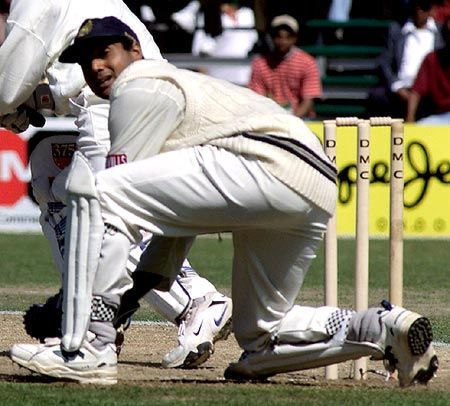'For the first time, in picking selectors, we had an application process. In the past it used to be just decided by members who used to come representing their associations, they used to recommend names and we used to see if they fit the criteria and they were appointed.'
 India’s new selection committee has raised quite a few eyebrows with none of the five members having had a long career in international cricket. But to its credit, the BCCI followed a transparent process wherein it invited applications for the selection job for the first time and selected the best possible candidates who fitted all the criteria after a round of interviews.
India’s new selection committee has raised quite a few eyebrows with none of the five members having had a long career in international cricket. But to its credit, the BCCI followed a transparent process wherein it invited applications for the selection job for the first time and selected the best possible candidates who fitted all the criteria after a round of interviews.
Chairman of selectors MSK Prasad played in the 1990s and featured in just six Tests and 17 ODIs, while the other members Sarandeep Singh (3 Tests, 5 ODIs), Devang Gandhi (4 Tests, 3 ODIs), Gagan Khoda (2 ODIs) and Jatin Paranjpe (4 ODIs) also didn’t feature much at the international level.
BCCI secretary Ajay Shirke clarified that the best three candidates were selected from the huge number of entries that were received while Prasad and Khoda were retained from the previous Sandeep Patil-led committee.
'For the first time in picking selectors we had an application process. In the past it used to be just decided by members who used to come representing their associations. They used to recommend names and we used to see if they fit the criteria and they were appointed. This time we have gone through this process, we had a lot of people, a lot of applications came; we also got a first hand insight into what their ideas are, what they wish to do, and what their visions are,” Shirke said in Mumbai on Wednesday.
The BCCI criteria for former players, who wanted to apply for the selectors post clearly stated that the applicant should played either a Test match or ODI or should have featured in more than 50 first class matches in India.
With the big names staying away, the BCCI had no option but to appoint Prasad as the chief selector to replace Patil, who was himself handpicked by previous president Narayanswami Srinivasan in 2012, claiming that the important post of a chief selector needed “a person of sufficient stature”.
Asked for the reasons behind Prasad’s appointment as the chief selector, Shirke replied: “Like I told you we have only filled up selectors’ vacancies as they were created. So two selectors had finished their term of four years, the maximum which can be granted to anybody. So we have filled it up and the senior-most person has been elevated to the chairman’s position.”
Shirke, who earlier in the day was elected unopposed as the BCCI secretary further added that the “selection panel performance is ultimately related to the team’s success.”
By going ahead with a five-member selection panel, the BCCI also continued it’s defiance to the recommendations suggested by the Lodha panel.
The Supreme Court had ordered the BCCI to follow all the recommendations suggested by the panel and one of them was to have a three-member selection panel which would comprise only of Test players, who have retired from the game for atleast five years.
It remains to be seen how the Lodha panel and the Supreme Court reacts to the latest developments in the BCCI but the board stated in a media release that the decisions taken in the annual general meeting are meant to ensure that the "day-to-day operations of the BCCI are not hampered particularly in view of the ongoing major national and international tournaments, commitments and is subject to the orders of the Supreme Court."
IMAGE: India wicketkeeper MSK Prasad in action during the second ODI against West Indies, in Toronto, on September 12, 1999.
Photograph: Reuters











